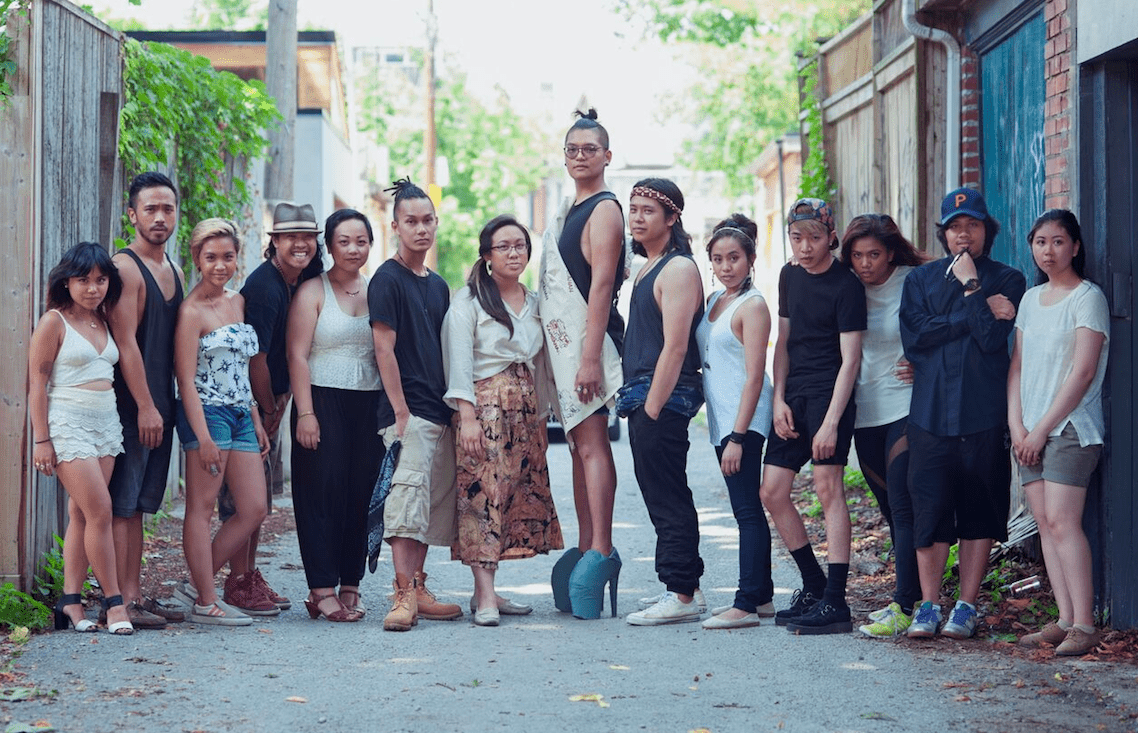What is your educational background, and how did you end up landing this super cool position?
I graduated from the University of Toronto at Scarborough in 2012 with an Honours Bachelor of Arts. I specialized in Arts & Culture and majored in Art History with the intention of working in arts education. I never imagined that I would find myself working in community arts!Shortly after graduating, my neighbour Greg Thomas, who worked at Young People’s Theatre and Nomanzland at the time, encouraged me to check out Kapisanan and I thought it would be a good way to keep myself busy during the summer, in addition to getting some interning experience.I started off as an Event Planning Intern for the 7th Annual Kultura Filipino Arts Festival, and that was such an amazing experience, so I decided continue my involvement to explore where community organizing would take me. That same year, I began to provide grant-writing support and lead Kapisanan’s youth programs, specifically Clutch (a mentorship and cultural immersion program for young Filipino women) and the development of K Mobile (our school programming). As a youth myself, it was so empowering to have been entrusted with those responsibilities.Earlier this year, Kapisanan’s founder and former Executive Director Caroline Mangosing decided it was time for her to step down and pass the baton over to a new generation of young Filipinos and saw me fit to take on her mantle. I’m so honoured by this opportunity and I look forward to sharing this new journey with the community!
As the Executive Director, what are your main responsibilities?
Apart from administrative work, grant writing, cultivating sponsorships, and fundraising, I think the most important part of my job as Executive Director is being a connector. The success of a community relies on the ability to support each other, and it’s especially crucial to connect Filipino youth with relatable mentors, role models and with each other. These relationships are key to developing empowered, emerging adults.
What are the goals of the Kultura Filipino Arts Festival?
Kultura is creating a venue for dialogue within our community, as well as sharing a deeper understanding of Filipino-Canadian culture and experience with the broader communities in Toronto. Ultimately, we’re celebrating the vibrant and contemporary creative expressions of Filipinos in the diaspor.
What are some highlights we can expect this year?
I’m really excited to see Carlos Celdran perform Livin’ La Vida Imelda at OCAD University. He’s kicking off the festival with a fundraiser and mounting a new iteration of his one-man show that recently saw success off-Broadway in NYC last fall. I saw Carlos perform If These Walls Could Talk at Kultura last year, and it was such an enlightening experience.
Growing up in Toronto, there were few, if any, opportunities to explore Philippine history, so it’s really a privilege to learn from Carlos, who presents history in such an engaging, theatrical way. I’m looking forward to expanding my knowledge of the Marcos regime beyond Imelda‘s collection of shoes.And, of course, everyone will love Kultura’s finale at Yonge-Dundas Square! We have six Fil-Can chefs battling it out at Kain Kalye: Filipino Street Eats Competition, featuring tons of delicious traditional and nouveau Filipino food. The winning chef gets a round trip flight to the Philippines, sponsored by Philippine Airlines, so the stakes are high!
When did sharing filipino culture become really important to you?
It all started at Kapisanan. Prior to that, I had little interest in Filipino culture. Kapisanan and Kultura were my entry points to Filipino culture and it was such a transformative experience that opened new doors, grew my confidence and helped me come to terms with my cultural identity. On top of that, the Filipino community here in Toronto is so exciting; we can’t help but be passionate about sharing our culture with others.
What are three skills that are particularly important to be successful at your job?
I owe a lot of my success and growth to Caroline who was my mentor and role model throughout my journey at Kapisanan. The three things I learned from her were: 1. Know your story.2. Fall in love with excellence.3. The struggle is the blessing.
What is your favourite filipino dish?
It’s so hard to choose! It’s a toss up between my late lola’s Kare-Kare and my dad’s Adobong Sitaw.
Where is the filipino community in Toronto?
Everywhere. Filipinos are spread all over the GTA.
How many filipinos live here?
The last Statistics Canada (2011) counted over 600,000 Filipino-identified individuals, with 44% of this group in Ontario, while 37% live in the Toronto census metropolitan area. It’s been four years since that survey, however, and the community has definitely grown rapidly since then!
What do you love most about your job?
I’m always discovering something new about myself, others, and the community. It’s a constant learning experience and it’s never dull.
What do you love most about Toronto?
I love food and film. I’m always excited when TIFF rolls around, and the food scene in Toronto has really exploded in recent years. Filipino food in particular has become a mainstream trend, and it’s been cool and inspiring to see innovative Filipino chefs build on our parents’ and grandparents’ traditional recipes.
If you could whisper some advice to your 21-year-old self, what would you say?
What I would tell myself at 21 is something I still tell myself today at 26: “Don’t whisper. Yell.” To this day, I still doubt my own voice and have trouble trusting my instincts. But I’m quickly learning that my voice matters and that I need to occupy space and amplify my own voice on my own terms.
What’s your current life motto?
Be the person you needed when you were younger.



 Follow Us On Instagram
Follow Us On Instagram
